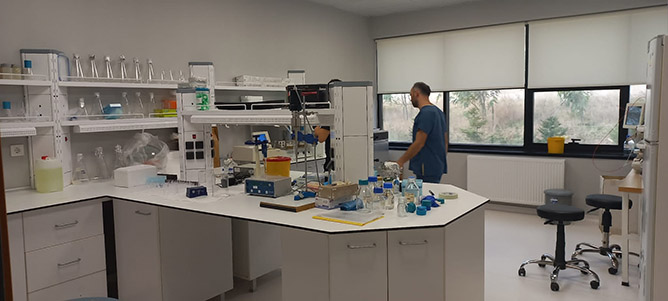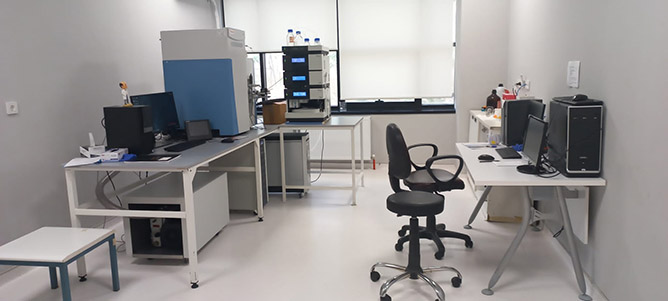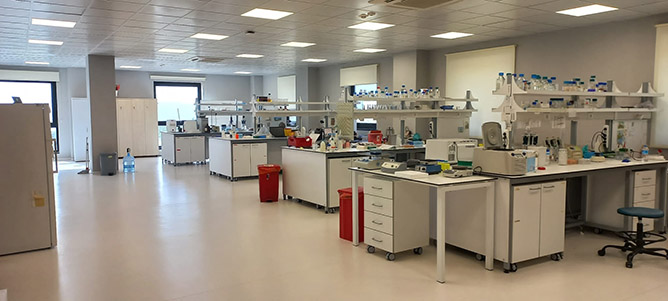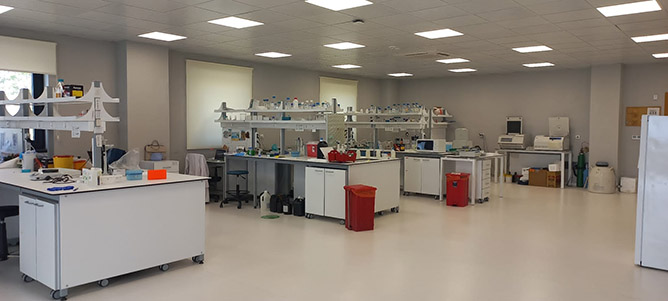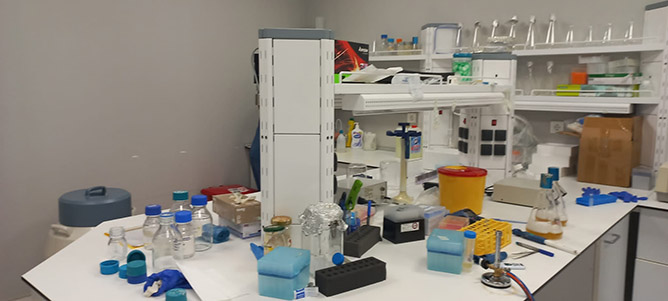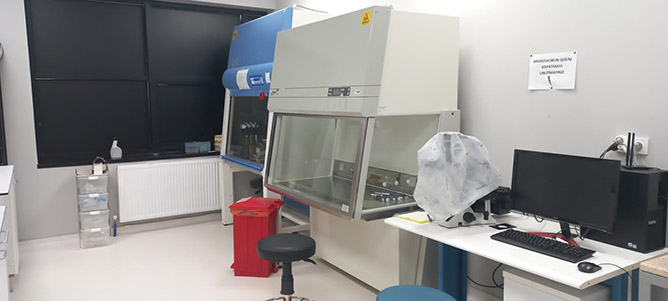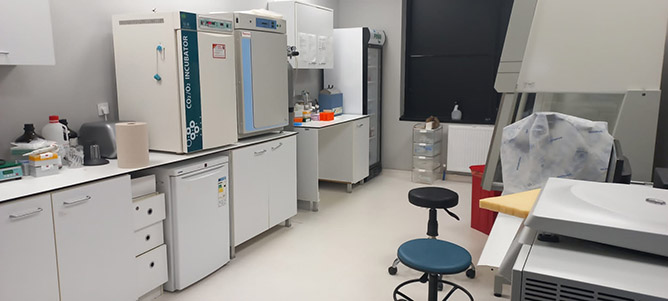Kocaeli University Protein Research and Proteomics Laboratory
Kocaeli University Protein Research and Proteomics Laboratory (KOU-PAPL) was established between the years of 2007 and 2010 and has been continuously improving its infrastructure. The lab is conducting research and product development without interruption since 2010. The laboratory is equipped with state-of-the-art instruments and analysis systems, making it a comprehensive facility for 2DE-MALDI-TOF/TOF and LC-MS/MS-based proteomics studies. Additionally, recombinant protein production studies was conducted, where proteins are produced in E. coli and used as antigens for antibody production or standards in ELISA tests . The laboratory successfully applies all the tools of recombinant DNA technology. Cell culture studies were also performed. In these studies, the intracellular localization and functions of proteins were investigated. A particular focus is placed on cancer proteomics. Recently, using the proximity biotin labelling method (TurboID), candidate biomarker molecules have been discovered using breast cancer cell lines after comparative cell surface proteome analysis.
All R&D and innovation studies conducted are supervised by the founding faculty members of the laboratory, Prof. Dr. Murat Kasap and Assoc. Prof. Dr. Gürler Akpınar. As of 2023, 2 visiting faculty members, 2 doctoral students, 4 master's students, and 4 research assistants are conducting research activities. The laboratory supports many R&D studies conducted by the Faculty Kocaeli University of Medical School. Furthermore, the laboratory provides fee-based support to all researchers nationwide. The service catalog can be accessed at http://proteomik.kocaeli.edu.tr/.
An average of 10-12 scientific paper annually is published by the laboratory. Some commercialized biotechnological products are also developed. To train researchers interested in proteomics, nationwide, our laboratory organizes certified courses. To date, we have organized nearly 10 courses, providing training workshops are organized. Approximately 300 academicians were trained so far. Financial support for R&D and innovation studies conducted in our laboratory is provided by TUBITAK, MARKA, the Ministry of Development, and KOÜ-BAP unit.
